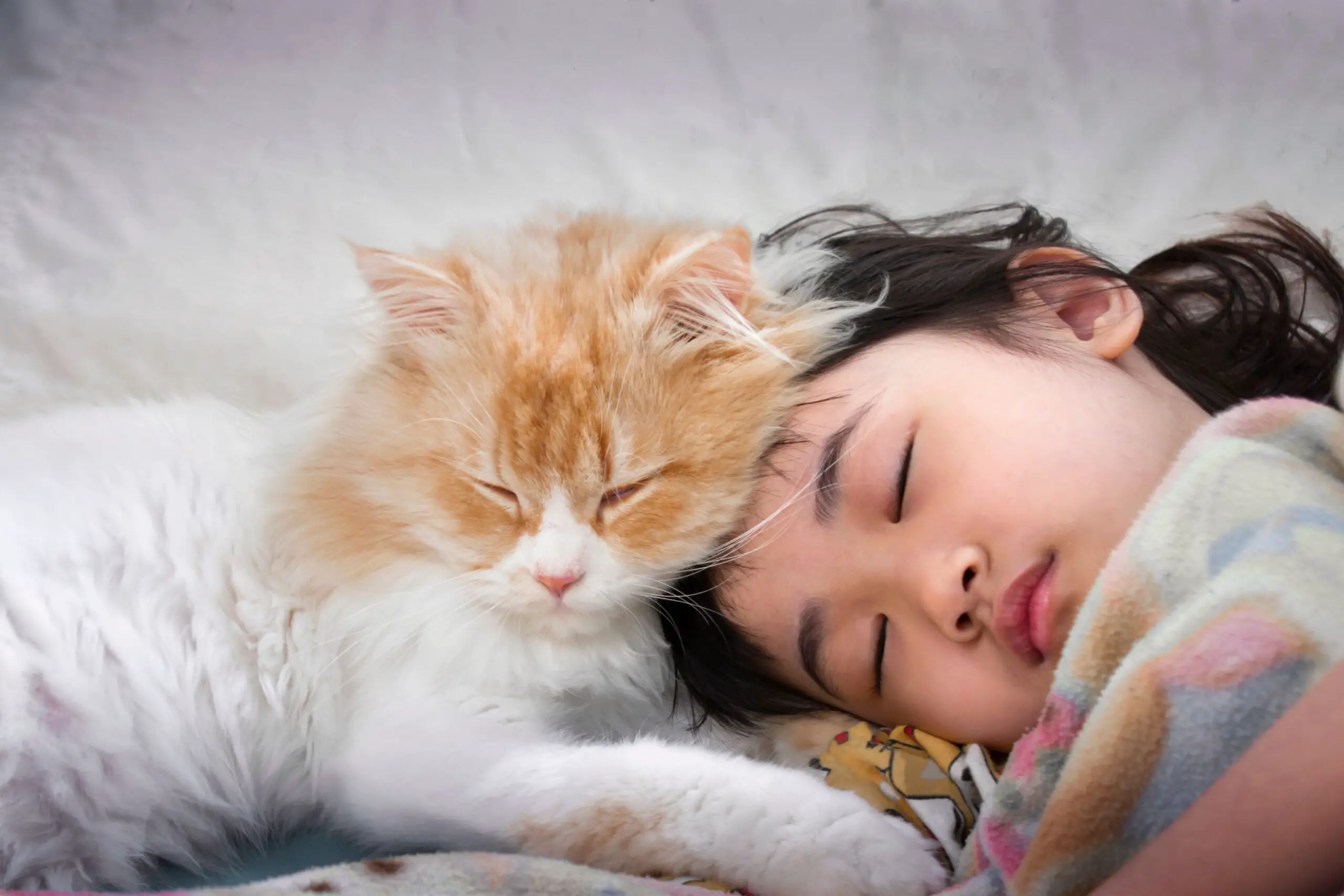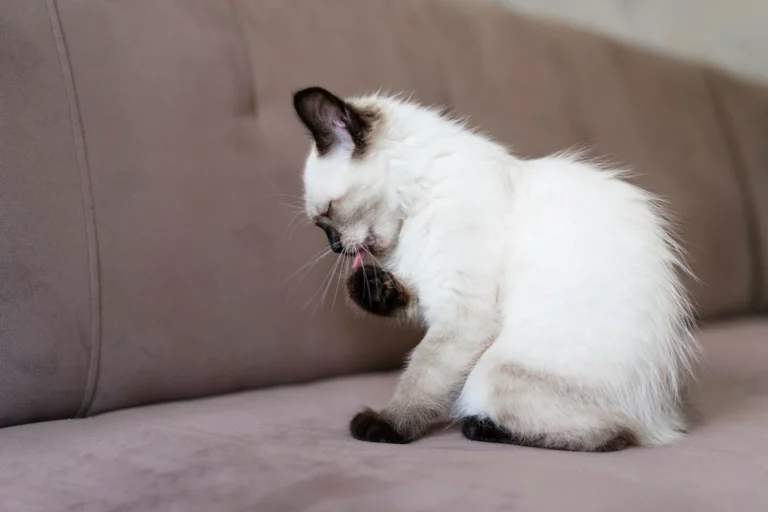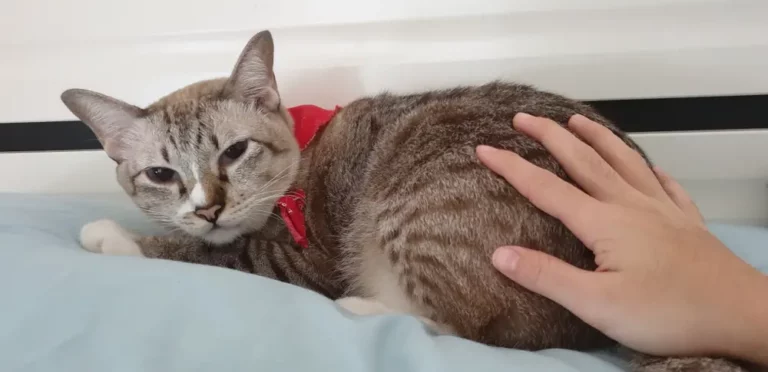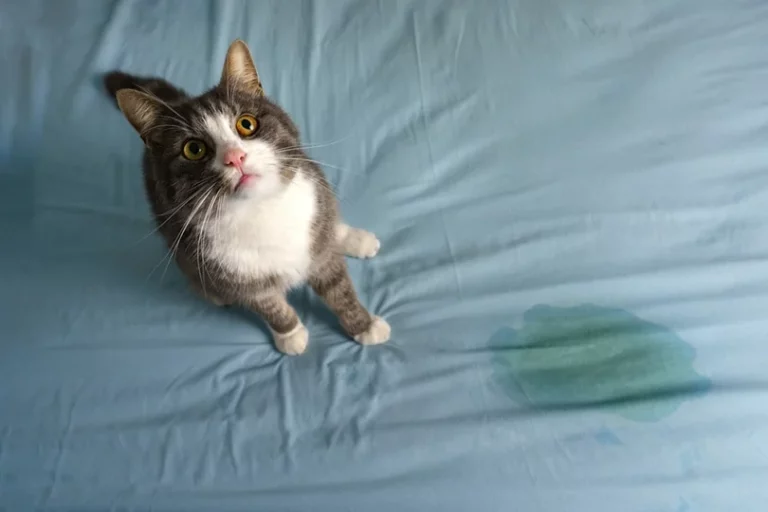Can Cats Catch a Human Cold? Debunking the Myth
As a loving cat owner, you might be worried about the possibility of your furry friend catching a cold from you.
In this blog post, we will answer the question ‘can cats catch a human cold’, exploring common symptoms and treatments, and provide insights not covered in previous blog posts.
Our goal is to provide you with comprehensive and reliable information on this important topic.
Key Takeaways
Cats cannot catch a cold from humans.
Cats can develop upper respiratory infections (URIs).
Prevention and treatment options are available.
Understanding Upper Respiratory Infections in Cats
Difference between a cold and a URI
A cold, which humans are prone to, is a mild viral infection affecting the upper respiratory tract. In cats, however, the equivalent is called an upper respiratory infection (URI). URIs in cats are caused by a variety of pathogens, including viruses and bacteria, and can present similar symptoms to a human cold.
Common causes of URIs in cats
The most common causes of URIs in cats are feline herpesvirus (FHV-1) and feline calicivirus (FCV). These viruses are highly contagious among cats and can be easily spread through direct contact, shared items, or even in the air.
Other pathogens, such as Chlamydophila felis and Bordetella bronchiseptica, can also contribute to URIs in cats, but they are less common.
The role of viruses and bacteria
While viruses are the primary cause of URIs in cats, secondary bacterial infections can occur and exacerbate the severity of the illness. Viruses damage the respiratory tract’s mucosal lining, making it more susceptible to bacterial invasion.
In some cases, bacterial infections can lead to complications such as pneumonia, requiring more intensive treatment.
Can Cats Catch a Human Cold? The Truth Unveiled

The distinction between human cold viruses and cat URIs
It’s essential to understand that human cold viruses and cat URIs are caused by different pathogens. Human colds are typically caused by rhinoviruses, while cat URIs are mainly caused by feline herpesvirus (FHV-1) and feline calicivirus (FCV). These pathogens are species-specific, meaning they do not cross-infect between humans and cats.
The reason behind the misconception
The misconception that cats can catch a human cold likely stems from the similarities in symptoms between human colds and cat URIs. Both can cause sneezing, coughing, and nasal discharge.
However, the underlying pathogens are distinct, and there is no scientific evidence to support the idea that cats can catch a human cold.
Why cats cannot catch a human cold
Cats cannot catch a human cold because the viruses responsible for human colds are not capable of infecting cats. These viruses are adapted to infect human cells, not feline cells. Similarly, the viruses that cause URIs in cats are adapted to infect cat cells and do not cause illness in humans.
So, while it’s natural to worry about your feline friend when you’re sick, rest assured that they won’t catch your cold.
Symptoms of a Cat Cold: What to Look Out For

It’s crucial to recognize the signs of a cat cold so you can provide appropriate care and seek veterinary assistance if needed. Here are some common symptoms to watch for:
Sneezing, coughing, and nasal discharge
One of the most noticeable signs of a cat cold is sneezing, often accompanied by coughing and nasal discharge. These symptoms occur as the cat’s immune system attempts to rid the respiratory tract of the infection.
Eye discharge and inflammation
Cats with a cold may also exhibit eye discharge, which can be clear or pus-like, depending on whether a secondary bacterial infection is present. Inflammation, redness, and swelling around the eyes are also common.
Loss of appetite and lethargy
A cat with a cold may lose its appetite, leading to weight loss if the infection is severe or prolonged. Additionally, lethargy and a general lack of energy are typical as the cat’s body focuses on fighting the infection.
When to consult a veterinarian
While many cat colds resolve on their own, it’s essential to monitor your pet closely and consult a veterinarian if symptoms worsen or persist for longer than a week.
Signs that your cat may need veterinary attention include difficulty breathing, dehydration, persistent fever, or any other concerning symptoms. Early intervention is key to preventing complications and ensuring a swift recovery.
Preventing and Treating Cat Colds
To ensure your feline friend stays healthy and to minimize the risk of URIs, it’s important to understand preventive measures and treatment options.
Vaccinations and their importance
Vaccinations play a crucial role in preventing URIs in cats. The core feline vaccination schedule typically includes vaccines against feline herpesvirus (FHV-1) and feline calicivirus (FCV). These vaccines may not entirely prevent infection, but they can significantly reduce the severity and duration of illness if your cat does contract a URI.
Maintaining a clean and stress-free environment
Maintaining a clean environment for your cat can help reduce the risk of URIs. Regularly sanitize food and water dishes, litter boxes, and other shared items to minimize the spread of pathogens.
Additionally, minimizing stress for your cat is essential, as stress can weaken their immune system, making them more susceptible to infection. Provide a comfortable and quiet living space, and ensure your cat has a safe place to retreat to when they need some privacy.
Treatment options for cat colds
If your cat does come down with a cold, it’s essential to provide supportive care to help them recover. This includes ensuring they stay hydrated and encouraging them to eat. You can offer warmed-up wet food or tuna water to entice them to eat.
In some cases, your veterinarian may prescribe medications to manage symptoms or treat secondary bacterial infections. It’s important to follow your veterinarian’s advice and administer any prescribed medications as directed. Never give your cat human cold medications, as they can be toxic and harmful to your pet.
Common Misconceptions and Myths about Cats and Colds
There are many misconceptions and myths surrounding cats and colds. Understanding the truth behind these myths can help you better care for your feline friend and alleviate any concerns.
Myth 1: Cats can catch a cold from humans
As we’ve discussed, cats cannot catch a human cold. The viruses responsible for human colds are not capable of infecting cats. Instead, cats can develop their own upper respiratory infections caused by feline-specific viruses and bacteria.
Myth 2: Human cold medicine is safe for cats
Human cold medicine should never be given to cats, as it can be toxic and harmful to them. If your cat has a cold, consult your veterinarian for appropriate treatment options.
Myth 3: Cats can transmit colds to humans
Cats cannot transmit their colds to humans, as the viruses responsible for feline URIs do not infect human cells. The risk of zoonotic transmission, or the transmission of diseases between animals and humans, is very low when it comes to cat colds.
Myth 4: Cat colds are not serious and will resolve on their own
While many cat colds may resolve without medical intervention, it’s essential to monitor your pet closely and seek veterinary attention if symptoms worsen or persist. Early intervention can help prevent complications and ensure a faster recovery for your feline friend.
By debunking these myths and understanding the facts about cats and colds, you can provide better care for your pet and maintain their overall health and well-being.
Frequently Asked Questions
Can my cat catch the flu from me?
No, just like with the common cold, cats cannot catch the flu from humans. However, they can contract a feline-specific flu virus.
How long does a cat cold last?
The duration of a cat cold varies, but most cases resolve within one to two weeks. If symptoms persist or worsen, contact your veterinarian.
Can I use human cold medicine to treat my cat?
No, human cold medicine can be toxic to cats. Always consult with a veterinarian for proper treatment options.
Can I catch a cold from my cat?
No, you cannot catch a cold from your cat. Cat colds are caused by feline-specific viruses and bacteria that do not infect humans.
Conclusion
Cats cannot catch a human cold, but they can develop their own upper respiratory infections. Knowing the symptoms, prevention methods, and treatment options for cat colds is essential to keeping your feline friend healthy. Remember, if you have any concerns about your cat’s health, always consult a veterinarian.







